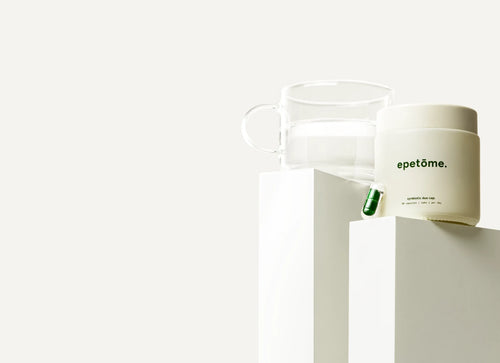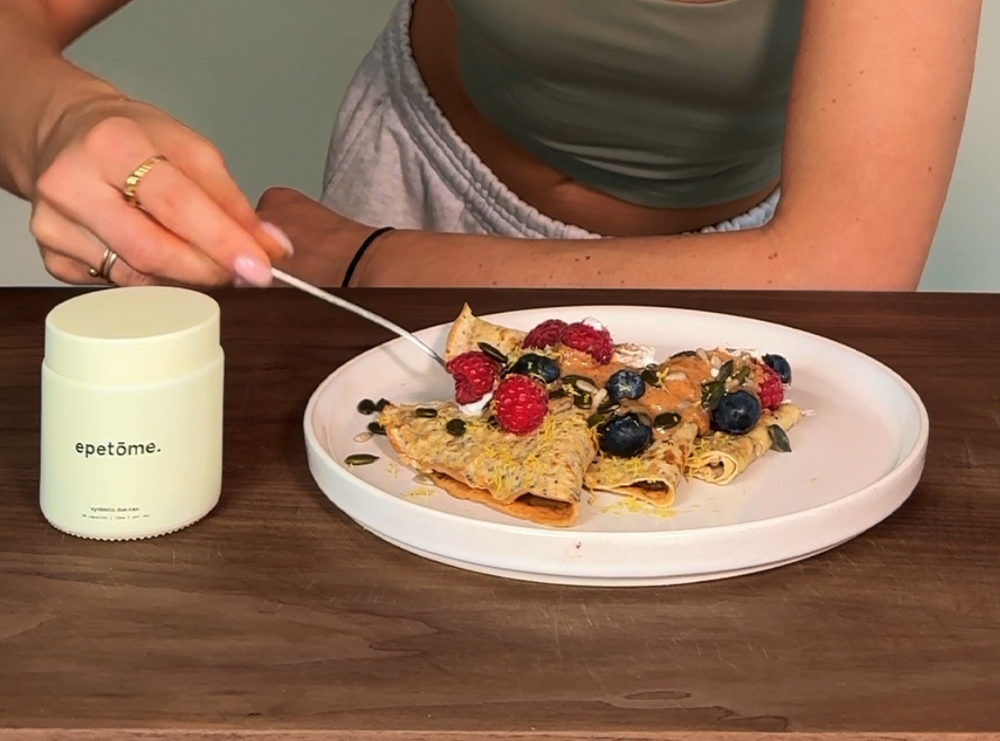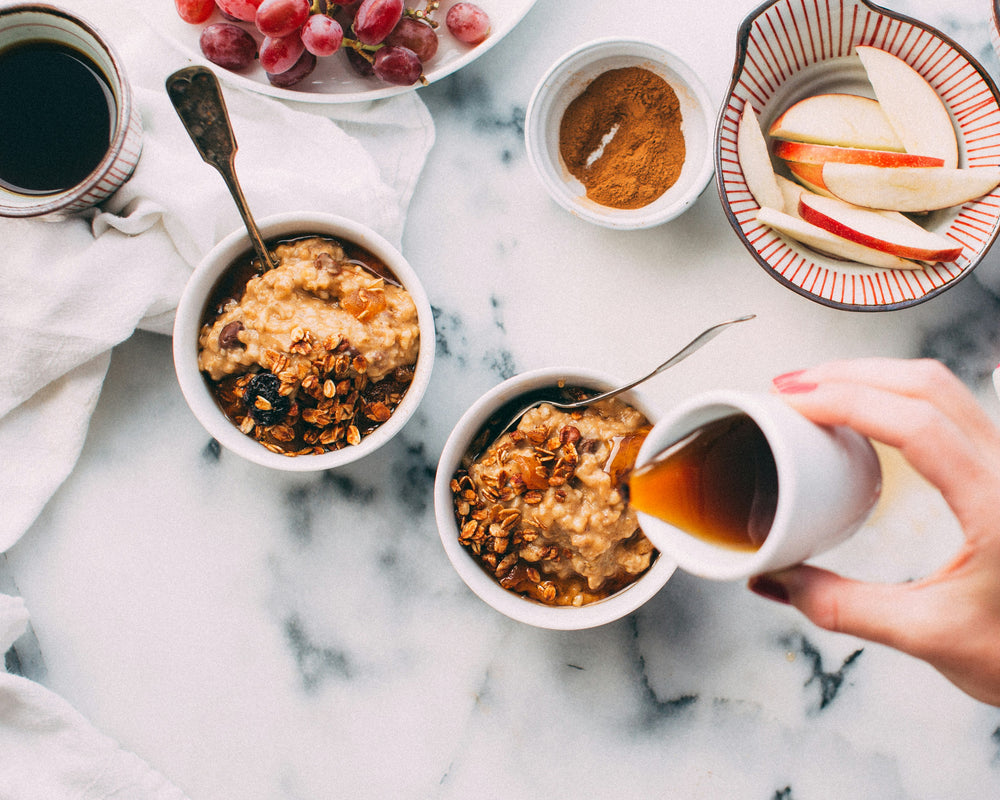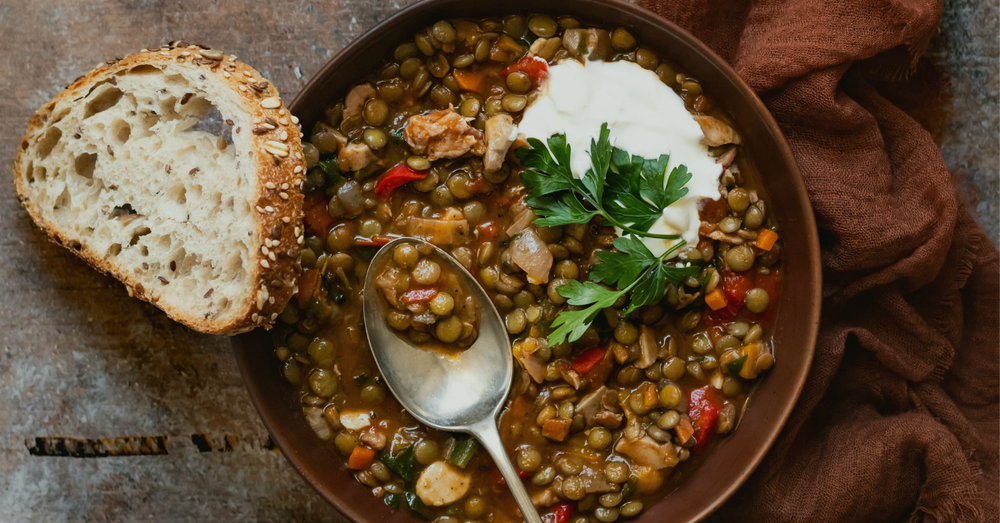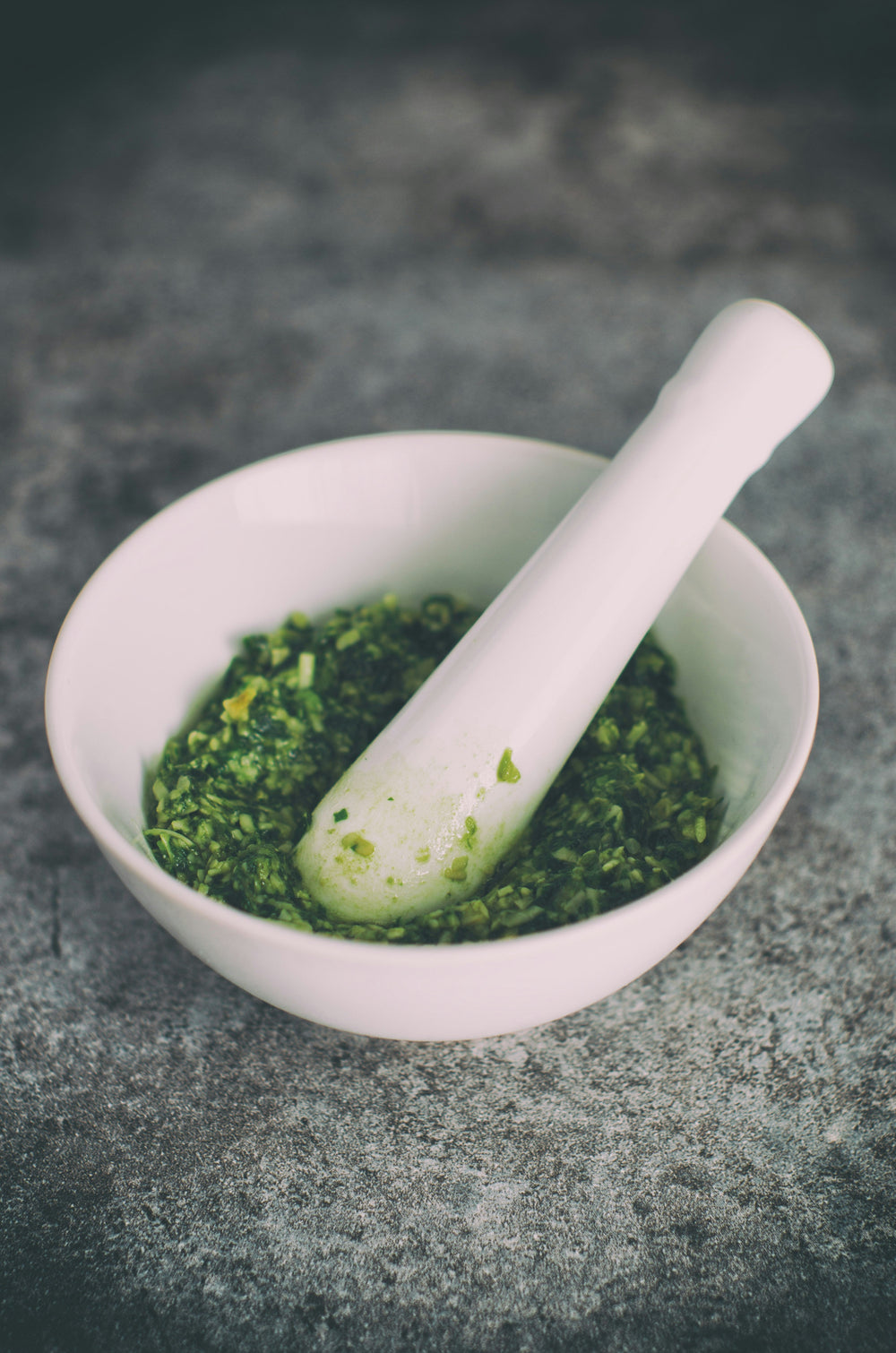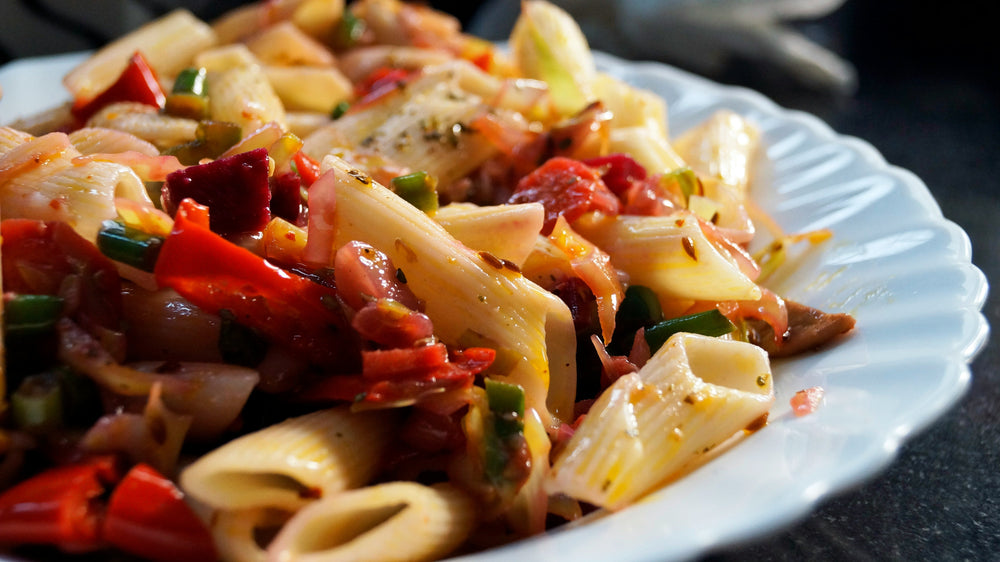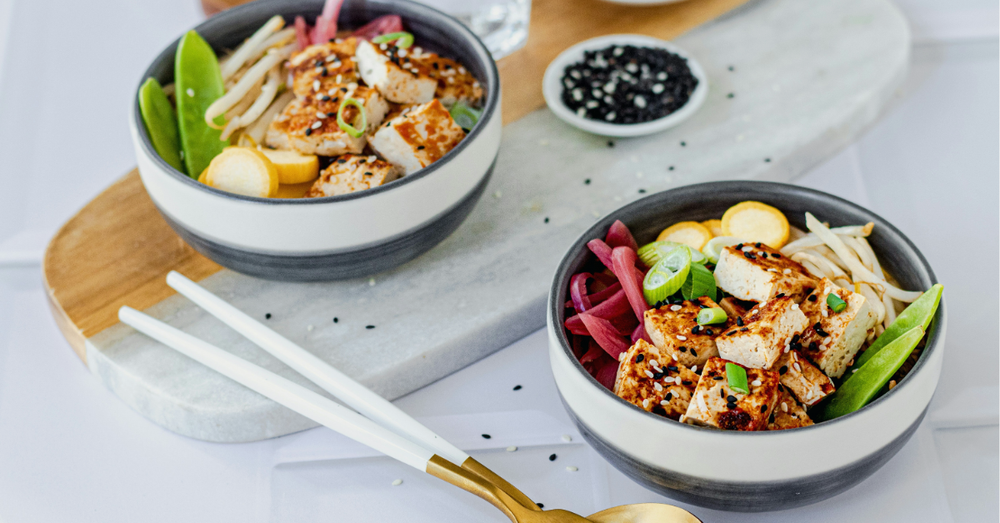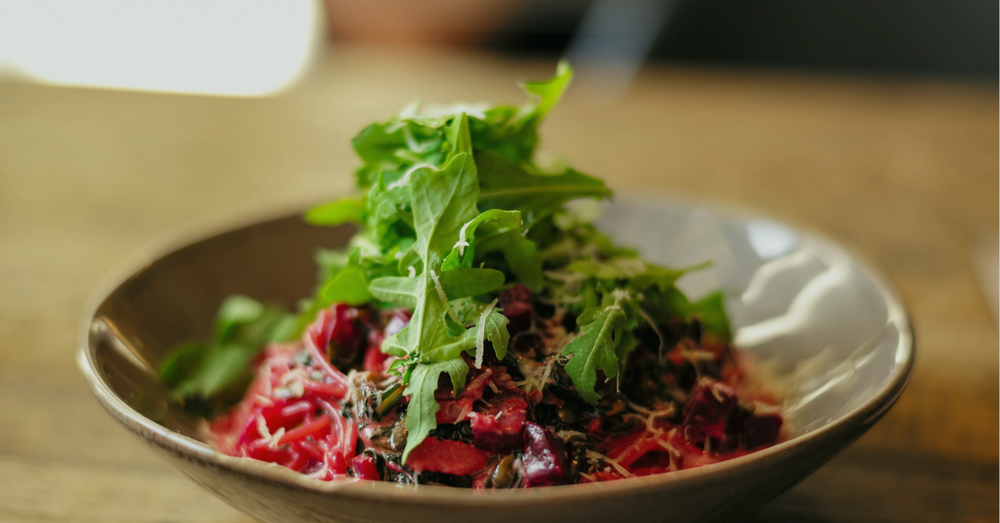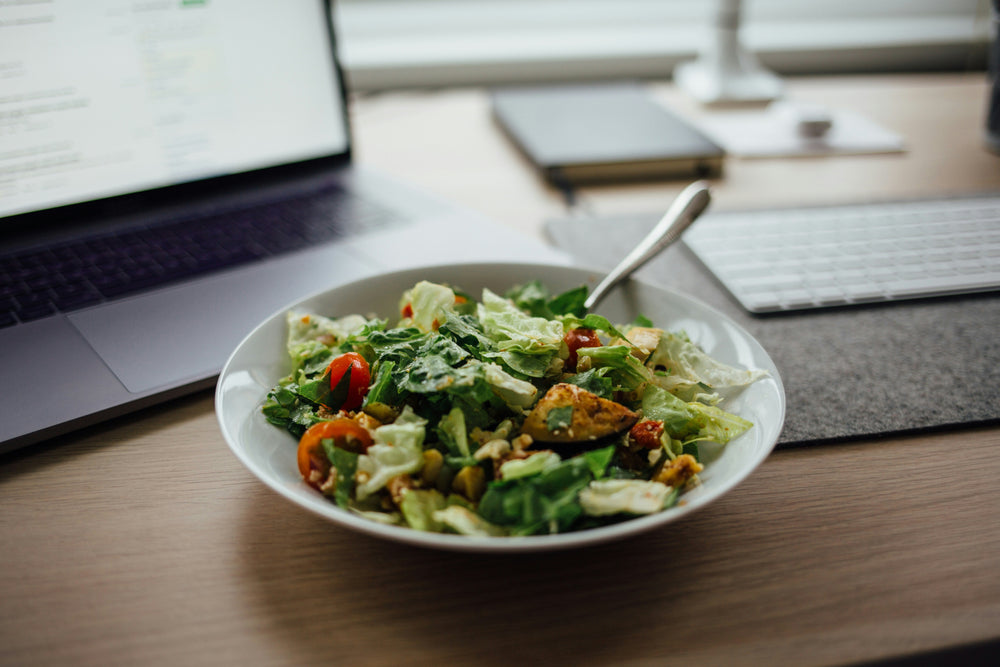This creamy green soup brings together broccoli, cauliflower, and kale for a delicious bowl that feels both comforting and energising. Finished with crispy chickpeas and toasted almonds, it is an easy way to enjoy a whole day’s worth of greens in one simple, nourishing meal.
skin ageing: why gut health comes before collagen.
Skin Ageing: Why Gut Health Comes Before Collagen Collagen is everywhere right now, especially if you’re into skincare. And there’s a good reason for it. But what often gets overlooked is how much your gut health plays a part in how collagen works in your body, and how your gut might even influence how much of it you produce. Collagen vs. Collagen Peptides: What’s the Difference? Collagen is the most abundant protein in your body. It forms the structure for your skin, bones, muscles and gut lining. You can think of it like scaffolding that holds everything together. As we age, our natural collagen levels begin to decline, and things like stress, sun exposure, and diet can speed that process up. When people talk about taking collagen for skin or gut health, they’re often referring to collagen peptides. But what exactly does that mean, and how does it differ from regular collagen? Collagen is the protein that naturally occurs in your body, providing structural support to your skin, bones, muscles, and gut lining. It's a large, complex molecule that is difficult for the body to absorb in its whole form. Collagen peptides, on the other hand, are collagen that has been broken down into smaller, more digestible pieces. This process called hydrolysis makes it much easier for the body to absorb and use. These smaller molecules are absorbed quickly and efficiently, which is why collagen peptides are commonly found in supplements. Collagen and Ageing: What Happens to Skin Over Time As we get older, our skin naturally changes - it gets dehydrated, loses its elasticity, and fine lines or wrinkles start to appear. A big reason for that is collagen as it makes up about 80% of the dry weight of your skin and keeps it firm and smooth. But...

Skin Ageing: Why Gut Health Comes Before Collagen
Collagen is everywhere right now, especially if you’re into skincare. And there’s a good reason for it. But what often gets overlooked is how much your gut health plays a part in how collagen works in your body, and how your gut might even influence how much of it you produce.
Collagen vs. Collagen Peptides: What’s the Difference?
Collagen is the most abundant protein in your body. It forms the structure for your skin, bones, muscles and gut lining. You can think of it like scaffolding that holds everything together. As we age, our natural collagen levels begin to decline, and things like stress, sun exposure, and diet can speed that process up. When people talk about taking collagen for skin or gut health, they’re often referring to collagen peptides. But what exactly does that mean, and how does it differ from regular collagen?
-
Collagen is the protein that naturally occurs in your body, providing structural support to your skin, bones, muscles, and gut lining. It's a large, complex molecule that is difficult for the body to absorb in its whole form.
-
Collagen peptides, on the other hand, are collagen that has been broken down into smaller, more digestible pieces. This process called hydrolysis makes it much easier for the body to absorb and use. These smaller molecules are absorbed quickly and efficiently, which is why collagen peptides are commonly found in supplements.
Collagen and Ageing: What Happens to Skin Over Time
As we get older, our skin naturally changes - it gets dehydrated, loses its elasticity, and fine lines or wrinkles start to appear. A big reason for that is collagen as it makes up about 80% of the dry weight of your skin and keeps it firm and smooth. But as we age, our body slows down its collagen production. The cells that make it (called fibroblasts) become fewer, and the blood supply to the skin can also decline which means less support for your skin. You can get collagen from food (like bone broth or oily fish) but people tend to take collagen in supplement form as it’s easier but that’s only part of the story.
Gut First: Why Digestion Matters
If you’re focusing on getting more collagen in your body, either through diet or supplements, your body needs to be able to absorb and use it. That means supporting digestion and the gut lining is essential. When your gut is functioning well, you’re more likely to absorb the amino acids, vitamins and minerals that help your body build its own collagen.
But if your gut lining is compromised - a condition sometimes called “leaky gut”- nutrient absorption may be reduced. That could mean you’re not getting the full benefit of collagen, or the ingredients that help you make more of it naturally like vitamin C or zinc.
Can Collagen Help Your Gut?
Yes, and it goes both ways. While your gut helps you absorb and use collagen, some early studies suggest that collagen peptides might also support gut health. In particular, they may help with:
-
Supporting gut lining integrity which means helping to keep the barrier strong and resilient
-
Reducing digestive discomfort such as occasional bloating or changes in bowel habits
-
Encouraging microbial diversity which means a healthy mix of gut bacteria, which supports both digestion and immunity
That said, collagen isn’t a magic fix - your gut still needs fibre, hydration, and a balanced diet to function its best.
Conclusion
Collagen may be trending, but your gut is the true foundation for skin health by supporting nutrient absorption. By looking after your gut microbiome, you give your body the best chance to make and use collagen where it matters, whether that’s for plump, glowing skin or better digestive comfort. As always, it starts from within and your gut is a good place to begin.
References
Larder, C. E., Iskandar, M. M., & Kubow, S. (2021). Gastrointestinal digestion model assessment of peptide diversity and microbial fermentation products of collagen hydrolysates. Nutrients, 13(8), 2720. https://doi.org/10.3390/nu13082720
Pu, S.-Y., Huang, Y.-L., Pu, C.-M., Kang, Y.-N., Hoang, K. D., Chen, K.-H., Chen, C. (2023). Effects of oral collagen for skin anti-aging: A systematic review and meta-analysis. Nutrients, 15(9), 2080. https://doi.org/10.3390/nu15092080
Ren, B., Yue, K., Zhang, Y., & Fu, Y. (2024). Collagen-derived peptides as prebiotics to improve gut health. Current Opinion in Food Science, 55, 101123. https://doi.org/10.1016/j.cofs.2024.101123
Zhang, H., Yao, Z., Song, Y., Hua, Q., Geng, X., Zhou, F., Li, Q., Li, Z., Luo, Z., Sun, J., Qi, C., & Li, D. (2025). Collagen peptides promote skin collagen synthesis by modulating the gut microbiota and activating the TGF-β pathway. Food & Function, Issue 13.
lifestyle. gut health recipes.
ready in 10 minutes
herb-whipped cottage cheese chicken bagels.
These basil whipped cottage cheese protein bagels make a fresh, high-protein breakfast or lunch, combining creamy herb-blended cottage cheese with juicy chicken, rocket, and tomatoes. They’re quick to assemble, packed with flavour, and perfect for a nourishing breakfast or light lunch.
ready in 10 minutes
kiwi chocolate protein chia pots.
These Kiwi Chocolate Protein Chia Pots make an ideal high-fibre, high-protein breakfast that keeps you full and energised all morning. They’re quick to prepare, easy to store, and perfect for a healthy grab-and-go option.
ready in 15 minutes
spiced apple porridge.
This spiced apple and pumpkin seed porridge is a warming, high-fibre breakfast that’s perfect for cosy mornings. Made with creamy oats, gently caramelised apples and a crunchy pumpkin seed topping, it’s ready in just 15 minutes and serves one.
ready in 50 minutes
prep-ahead baked blueberry oats.
These prep-ahead oven-baked oats with blueberries and bananas are rich in protein and fibre, making them a nourishing, gut-friendly breakfast to enjoy all week.
ready in 15 minutes
spicy green eggs with feta.
These spicy green eggs with feta are a quick, protein-rich recipe packed with gut-friendly ingredients like spinach, courgette, and spring onion. Baked in the oven or air fryer, they’re simple to make, full of flavour, and support digestion with a balance of fibre, protein, and healthy fats. Perfect for breakfast, brunch, or a light meal, this vibrant dish proves that nourishing your gut can be both delicious and easy.
ready in 10 minutes
egg wrap with pesto.
Bright, fresh, and ready in just 10 minutes, this flavour-packed wrap serves one and is ideal for breakfast, lunch, or any time you’re after something simple yet filling.
ready in 10 minutes
peach cobbler overnight oats.
Start your day with a gut-friendly twist on a classic dessert. The peach cobbler overnight oats serve 2–3 and takes just 10 minutes to prepare the night before. Packed with fibre, flavour and feel-good ingredients, it’s the perfect make-ahead option for busy mornings or a nourishing snack you can enjoy any time of day.
ready in 15 minutes
smoky egg salad bagel crunch.
This smoky harissa egg bagel is the perfect 15-minute meal. Made with creamy Greek yoghurt, tangy pickles, and a hint of spice, it’s a high-protein twist on classic egg salad that delivers on both taste and texture. Ideal for busy days, this easy bagel recipe makes lunch feel gourmet without the effort.
ready in 20 minutes
chewy breakfast matcha protein cookies.
Soft, satisfying, and subtly sweet—these breakfast cookies are made to fuel your morning the right way. With fibre-rich oats, plant-based protein, and antioxidant-packed matcha, they’re a gut-friendly grab-and-go option that doesn’t compromise on flavour or function.
ready in 15 minutes
lemon & poppy seed pancakes.
Emily's light, gut-friendly crêpes are the perfect balance of fibre, protein, and healthy fats to support digestion and keep you feeling great.
ready in 10 minutes
carrot cake breakfast oats.
Start your day with a delicious and nutritious breakfast option - Carrot Cake Oats. Filled with fibre diversity to promote healthy digestion.
